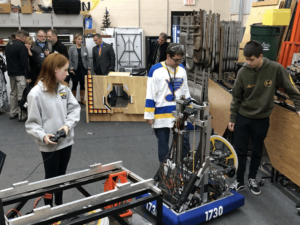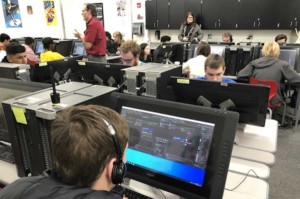Flat World Leader Pretend
I’m borrowing from a R.E.M. song from the 80s for this riff of a title, so credit to Stipes and company. But I interviewed Scott Hamilton, Managing Partner at Seton Partners about what was on his mind these days, and this pretty much sums it up. In a country that has focused on the achievement gap for so long, we seem to have forgotten we still have to worry about the importance of an American education to the world economy. Do we have the chops? Is our reluctance to offer strong virtual education strategies in our public school districts inhibiting us from rising to the top?
Here is a segment of that conversation.
ed: What’s topmost in the category of what we should be working on today to have a better tomorrow in education?
Well, I guess it’s what I have talked to a few people about this past week. We have all spent these past number of years or past decades focused on the achievement gap, which seems like a good and fair thing to be focused on, but we have somehow lost track of the fact that, even our best students and our best schools are some where in the middle of the pack internationally.
The big warning that the Nation at Risk report revealed in 1983 is something that we have not solved. We have not fixed anything. Things have only gotten worse. In many ways, it’s admirable that we have focused rather strongly on fixing the achievement gap, and that’s a good thing. But, we have lost sight of the fact that whether it’s kids in suburban district schools, or kids in our expensive urban private schools, you have a good chance that your chlild or neighbor’s child is in the middle of the pack internationally.
We don’t just have American pride at stake…just in terms of our competitiveness as a country let alone your child’s viability in the future, this matters. We have to be thinking more like Tom Friedman educationally. The world is flat and our schools are not making American children competitive.
That’s a hard thing to sell, because everyone wants to feel comfortable with the eduation their child is getting and everyone wants to think that the real problem is in the inner cities or somewhere else.
ed: Do you think digital education could address these issues?
Technology can and should change schooling in America. It will, despite the attempts by the status quo to thwart it politically. And it will help make our kids more globally competitive. But we are way behind, with just some DOS-like tools out there right now. Much to be done by consumers, entrepreneurs, investors, and then use of public dollars.
Background
Scott W. Hamilton is co-founder and managing partner of Seton Education Partners. As head of the Pisces Foundation for eight years, Hamilton designed and then led the effort to grow the Knowledge Is Power Program (KIPP) from two schools in 2000 to more than 80 of the best known and celebrated inner-city public schools in America. Previous to his philanthropic work, he held posts in the White House, the U.S. Department of Education, and the Massachusetts Department of Education, where, at age 30, he was named the Associate Commissioner of Education. His 2008 Thomas B. Fordham Institute report on Who Will Save America’s Urban Catholic Schools? received national press coverage, including an endorsement from the Washington Post editorial page.



0 Comments
Leave a Comment
Your email address will not be published. All fields are required.